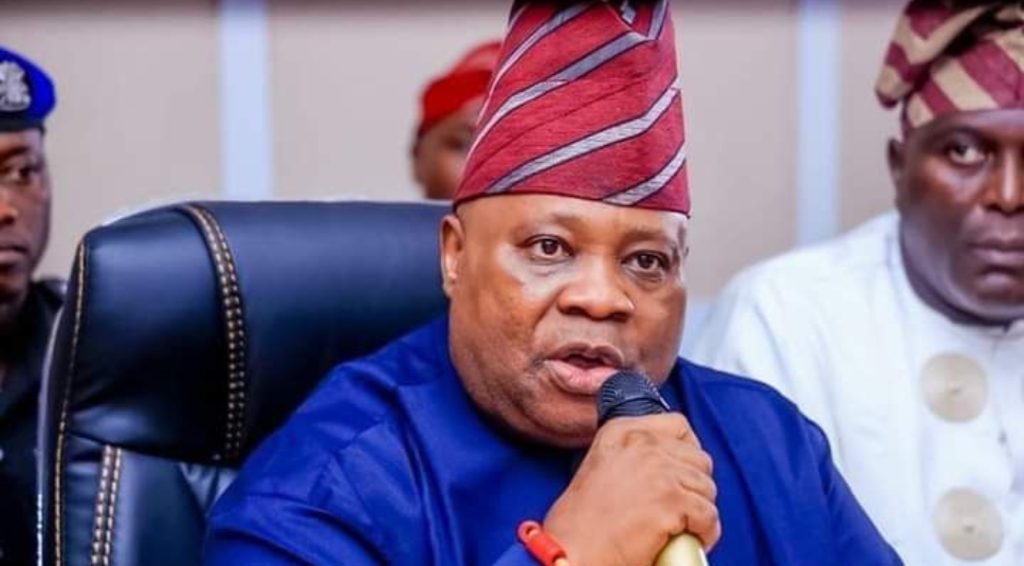The tranquility of Osun State has been shattered once again by the resurgence of a long-standing feud between the neighboring communities of Ilobu and Ifon. Accusations of unprovoked attacks, denials, and counter-accusations have become a recurring theme in the narrative of this protracted conflict, leaving residents trapped in a cycle of fear and uncertainty. The latest episode of violence erupted in the early hours of Tuesday, with both sides pointing fingers at the other for initiating the hostilities. The Ifon Progressive Union, representing the Ifon-Orolu community, alleges that gunmen from Ilobu stormed the Apiponroro area, unleashing a barrage of gunfire that sent shockwaves through the peaceful neighborhood. Residents, gripped by panic, were forced to abandon their homes and seek refuge elsewhere, adding another layer of displacement to the already strained social fabric of the region.
Jide Akinyooye, the Secretary of the Ifon Progressive Union’s Board of Trustees, provided a detailed account of the alleged attacks, stating that the gunshots reverberated through the Odoje and Golden Gate areas of Ifon, creating an atmosphere of terror and prompting a mass exodus of residents fleeing for their lives. The terrifying scenes of families scrambling for safety, their lives disrupted by the sudden eruption of violence, paint a grim picture of the human cost of this enduring conflict. However, the narrative takes a twist as Chief Goke Ogunsola, the Otun Jagun of Ilobu, vehemently denies the accusations leveled against his community. He counters the claims, asserting that it was Ifon gunmen who initiated the attacks on Ilobu, targeting their people living in Ganga and Apiponroro. Ogunsola portrays Ilobu as a peace-loving community under siege, forced to defend themselves against repeated aggression from Ifon. He further alleges that the Olufon, the traditional ruler of Ifon, issued threats against Ilobu during a meeting held on Monday, adding fuel to the already volatile situation.
The conflicting narratives presented by both sides highlight the deep-seated mistrust and animosity that have plagued the relationship between these communities for years. Determining the true instigator of the violence becomes a complex and challenging task, shrouded in conflicting accounts and accusations. What remains undeniable is the devastating impact of the conflict on the lives of ordinary citizens caught in the crossfire. The repeated outbreaks of violence have disrupted livelihoods, displaced families, and instilled a pervasive sense of fear and insecurity in the region. The urgent need for a lasting solution to this enduring conflict is undeniable, demanding intervention from higher authorities to prevent further bloodshed and restore peace to the affected communities.
In response to the escalating violence, the Osun State Government, led by Governor Ademola Adeleke, has taken decisive action to quell the unrest and prevent further escalation of the conflict. A 12-hour curfew, effective immediately, has been imposed on the warring communities, restricting movement from 7 pm to 7 am daily until further notice. This measure aims to curtail the activities of armed groups and restore a semblance of order to the troubled areas. In addition to the curfew, a contingent of security personnel, comprising the Army, Police, and the Nigeria Security and Civil Defence Corps, has been deployed to the affected areas to maintain law and order and prevent further outbreaks of violence. The presence of these security forces is intended to deter further attacks and provide a sense of security to the residents who have been living under constant threat.
The state government, through Commissioner for Information and Public Enlightenment Kolapo Alimi, issued a statement outlining the measures taken to address the crisis. The statement emphasizes the government’s commitment to ensuring lasting peace in the affected communities and highlights the seriousness with which the administration is treating the situation. The curfew and deployment of security forces are seen as immediate steps to contain the violence, while long-term solutions are being explored to address the root causes of the conflict. Governor Adeleke has reiterated his administration’s dedication to fostering peace and has called on all parties involved to cooperate with the government’s efforts to resolve the conflict permanently. This appeal for collaboration underscores the understanding that lasting peace can only be achieved through dialogue, reconciliation, and a genuine commitment from all stakeholders to put an end to the cycle of violence.
The root causes of the conflict between Ilobu and Ifon remain a complex tapestry of historical grievances, land disputes, and political rivalries. Untangling these intricate threads of contention requires a multifaceted approach that addresses not only the immediate triggers of violence but also the underlying factors that perpetuate the animosity between the communities. Sustained dialogue between community leaders, facilitated by neutral mediators, is crucial to fostering understanding, addressing grievances, and building trust. Traditional rulers, religious leaders, and influential community figures must play a pivotal role in promoting reconciliation and peaceful coexistence. In addition to dialogue, addressing the socio-economic factors that contribute to the conflict is essential. Providing opportunities for economic empowerment, improving access to education and healthcare, and ensuring equitable distribution of resources can alleviate tensions and create a more conducive environment for peace. Investing in infrastructure development and creating avenues for inter-community collaboration can further strengthen ties and foster a sense of shared destiny. The long and arduous journey towards lasting peace requires patience, perseverance, and a collective commitment from all stakeholders to break the cycle of violence and build a future of harmony and prosperity for the communities of Ilobu and Ifon.














